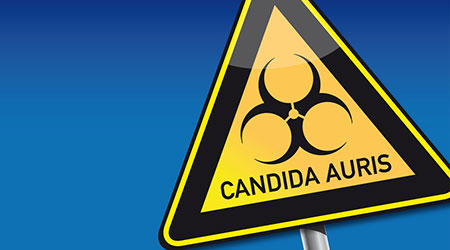People infected with C. Auris shed the fungus with their skin, contaminating beds, bed rails, doorknobs, and windowsills, according to an article on the Everyday Health website.
The findings confirmed that the superbug not only colonizes the skin, but persists on surfaces.
“Our findings emphasize the importance of environmental cleaning and disinfection, including of high-touch surfaces like bed rails,” said the author of the study, Joseph Sexton, PhD, a microbiologist in the Mycotic Diseases Branch of the Centers for Disease Control and Prevention (CDC).
C. auris recently has been on the rise across the globe. In the United States alone, cases have more than doubled in one year, from 257 in the spring of 2018 to 654 so far in 2019, according to the CDC.

 The High Cost of Healthcare Violence
The High Cost of Healthcare Violence EVS Teams Can Improve Patient Experience in Emergency Departments
EVS Teams Can Improve Patient Experience in Emergency Departments East Tennessee Children's Hospital to Become Dolly Parton Children's Hospital
East Tennessee Children's Hospital to Become Dolly Parton Children's Hospital The Future of the Global Hospital Hygiene Market
The Future of the Global Hospital Hygiene Market Rethinking Fire Safety Inspections
Rethinking Fire Safety Inspections